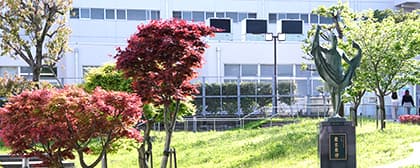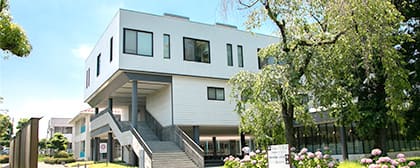Master's Program in English Language and Culture
Master’s Program in English Language and Culture
Annual intake: 4
Full quota: 8
Master’s (Humanities)
The goal of this program is to produce broad-minded individuals with a comprehensive set of capabilities,
including a strong intellect, the ability to think logically and flexibly, and excellent judgment—professionals who
have both advanced, practical English-language skills and the ability to adapt to different cultures, in order to
work proactively and effectively in a wide variety of international settings.
To achieve this goal, the program focuses on Teaching English to Speak of Others Languages (TESOL) as well as
English Literature and Linguistics. As students perform specialized studies in each of these fields, they can also
engage in research from a broader perspective by selecting subjects (for credit) in other fields. Research subjects
relate to the culture, literature, and language of English, as well as English language education. The program
focuses on helping students cultivate practical language capabilities that enable fluent engagement in today’s
highly internationalized world.
In addition to cultivating the advanced-level capabilities needed to fully participate in real-world Englishlanguage-related
research and education, students will also develop research skills. Because English-language
education at elementary schools is now compulsory in Japan, the program strives to train a professional that
possesses not only specialist knowledge of English but also the ability to grasp foreign-language education from a
pedagogical perspective.
Graduates of this program typically go on to work in the international divisions of companies in the private sector,
as high school teachers after passing a teacher employment examination, or as university lecturers.






